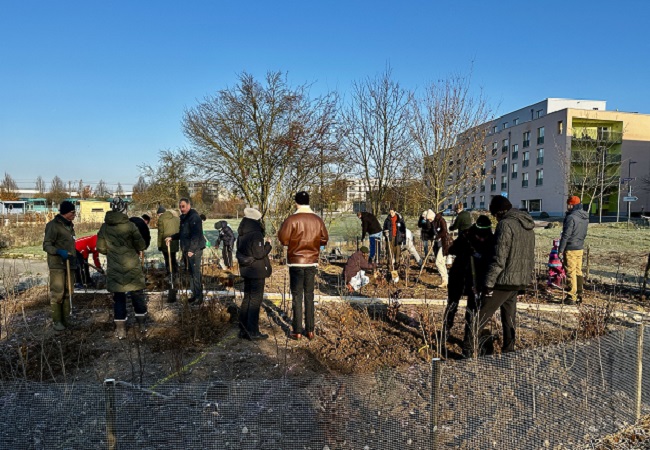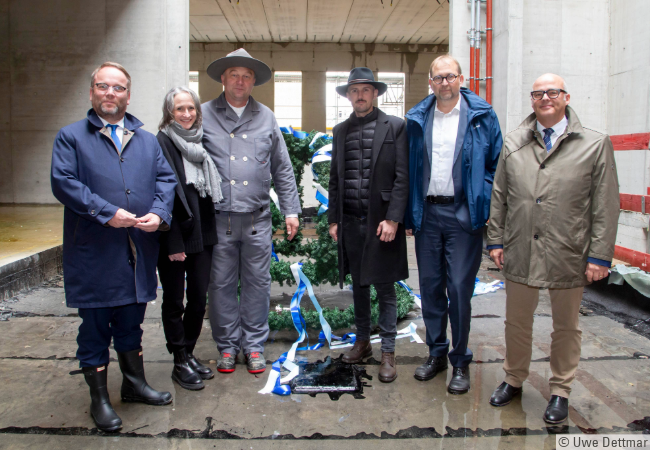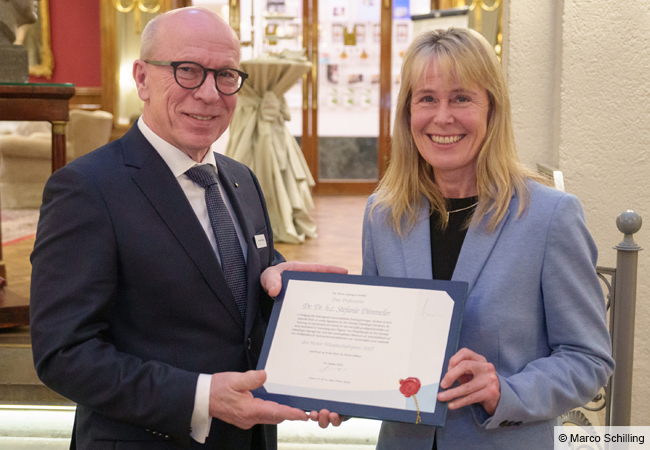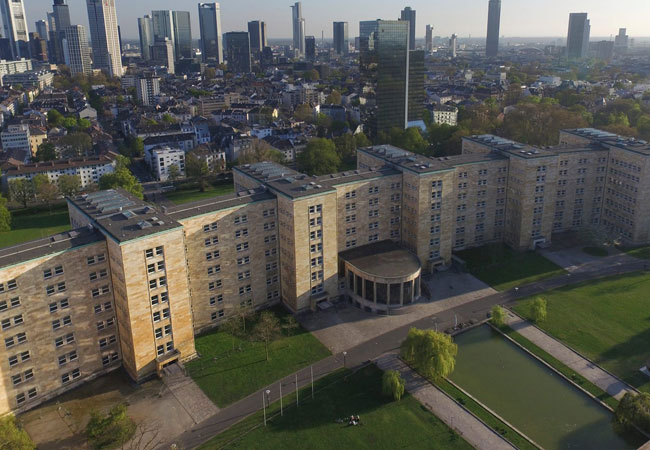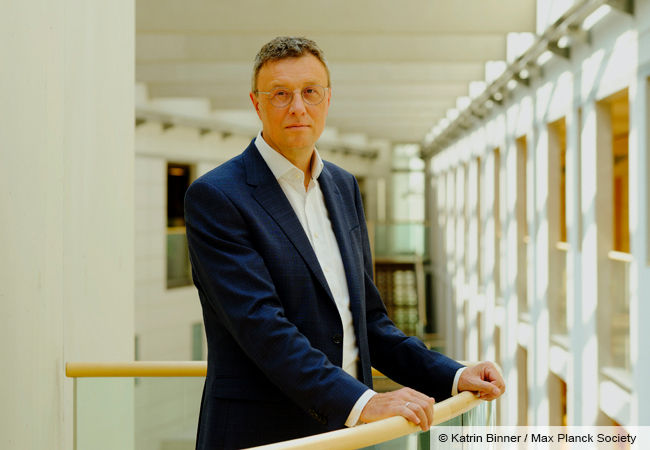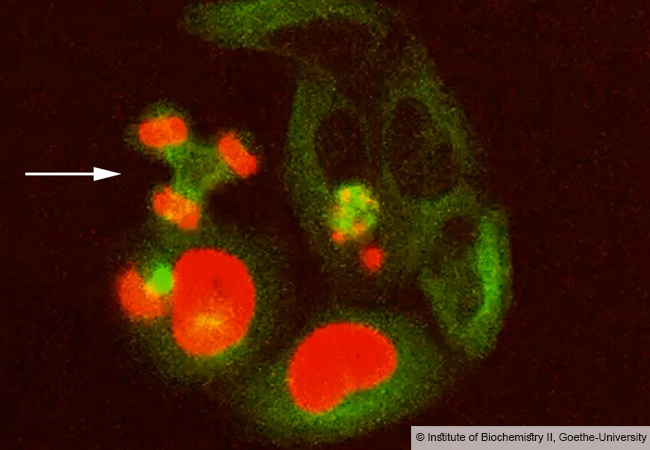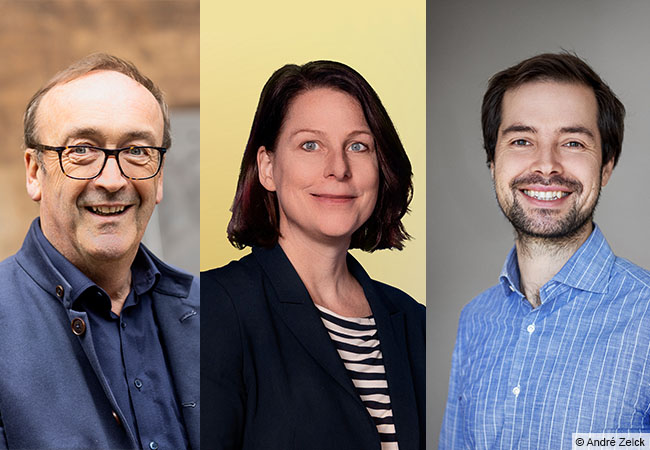Hesse’s largest wooden residential building opens, offering student residence and International House
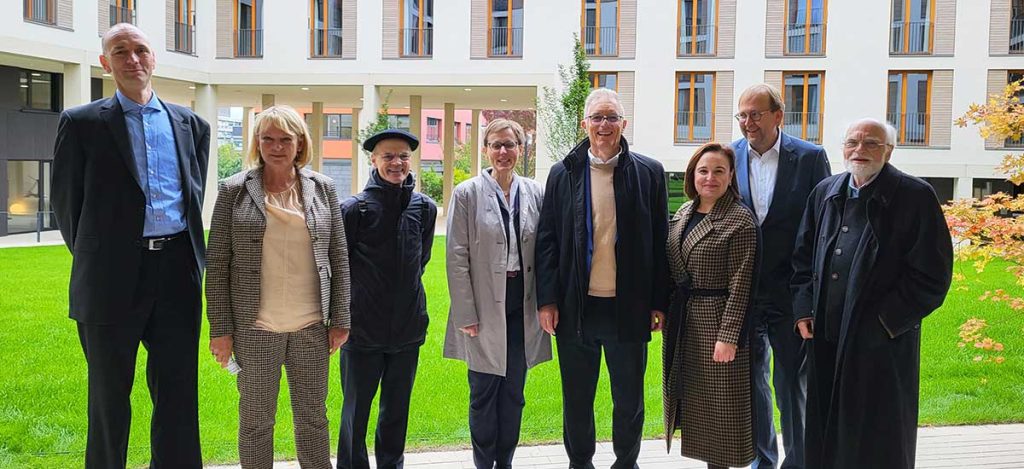
Three and a half years after laying the cornerstone, a new innovative living quarter for students and researchers opened its doors to its first tenants. A showcase for sustainability, inclusion and diversity.
Financed primarily by the Studierendenwerk Frankfurt with additional funds provided by the Foundation for the Promotion of International Academic Relations of Goethe University and the financial support of the state of Hesse and the city of Frankfurt, the new building is an energetically compact, highly thermally insulated and sustainably built passive house. The building materials were chosen not just based on their good primary energy factor, but also on their environmental compatibility and degradability. In a timber hybrid construction, all floor slabs and walls were built entirely in a cross-laminated timber (CLT) panel construction above a concreted base zone. Thanks to an innovative fire protection concept, the wooden construction remains visible in large parts of the building’s interior, giving all apartments a special character.
The building is also equipped with a photovoltaic system that meets the entire house’s needs. About 100,000 kWh of electricity can be generated each year, of which 90-95 percent goes into captive use. Depending on the electricity price – for illustrative purposes let’s assume it comes to 32 cents/kWh – the PV system enables savings of some 30,000 euros annually. Since the generated electricity goes into captive use, there is no need for a battery storage system. All excess electricity is fed into the public grid.
Beyond the sustainable construction, another distinguishing characteristic of the new accommodation for students and visiting scientists is the themed rooms and participatory activities, supervised by relevant instructors. A laundromat complete with a lounge area, a dance and yoga room, a music room, a fitness room, a sewing room, a home cinema room, two study rooms, a bicycle workshop, and a sunlit garden-courtyard all foster communal living.
The building also features outdoor areas with recreational value, including a covered outdoor area for communal events. Students’ rent comes up to 350 euros “warm” for a single or up to 420 euros “warm” for two-room apartments. For visiting scholars, rental costs start at 550 euros “warm”. Aside from 16 studio apartments, the International House also boasts 9 two-room apartments and 2 family flats.
“The integration of student quarters with those of experienced scholars and researchers has a model character, whereby the tenants are free in their choice on whether to retire to those areas reserved only for them. Ideally, those scholars visiting Goethe University will return to their place of origin as ambassadors of the university and the city of Frankfurt. Who knows, maybe they themselves or some of the students they engage with will come back to us as highly qualified professionals, who may even take up work here,” said Prof. Dr. Jürgen Bereiter-Hahn, Chairman of the Board of Trustees of the Foundation for the Promotion of International Academic Relations of Goethe University.
“The International House is more than just a housing project! Today, encounters and exchanges across national borders are imperative to create our world’s future viability. That is why the International House is a clear commitment of both Goethe University and the City of Frankfurt to internationality. In addition, both the International House as well as the new student dormitory serve as testimony to the unconditional commitment to sustainability,” said Goethe University President Prof. Dr. Enrico Schleiff.




